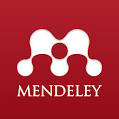The Impact of Teacher Training on Student Achievement in English Teaching-Learning at SMA S Nupela
DOI:
https://doi.org/10.29303/kopula.v7i1.6292Keywords:
pelatihan guru, prestasi siswa, pembelajaran bahasa InggrisAbstract
This study investigates the impact of teacher training in English classes at SMA S Nupela on students' performance. The objective is to assess the impact of different training methods such as workshops, online training and peer mentoring on students' improvement in English language proficiency. The study employs a quasi-experimental design with a control and experimental group and collects primary data from teachers and students and secondary data from school records. Results show that teacher training significantly improved students' performance with the greatest improvement coming from peer mentoring (16.2%), followed by workshops (11.1%) and online training (8.1%). Statistical analysis using paired t-test confirmed that all training methods had a significant effect on students' performance (p-value < 0.05). Furthermore, the ANOVA results showed a significant difference between the training groups (F = 4.91, p-value = 0.010), suggesting that the training method has an impact on student success. This study highlights the importance of teacher training, especially interactive methods such as peer mentoring, in improving both teaching effectiveness and student outcomes in English language learning. These findings provide valuable insights for designing more effective teacher training programs to improve the quality of education in SMA S Nupela.
References
Ayu, M., Sari, M. F., & Muhaqiqin. (2021). Pelatihan Guru Dalam Penggunaan Website Grammar Sebagai Media Pembelajaran Selama Pandemi. Jurnal Pengabdian Kepada Masyakarat, 2(1), 2797–3395.
Choirudin, Sugianto, R., Darmayanti, R., & Muhammad, I. (2023). Teacher Competence in The Preparation of Test and Non-Test Instruments. Journal of Teaching and Learning Mathematics, 1(1), 25–32. https://doi.org/10.22219/jtlm.v1i1.27695
Lowell, V. L., & Yang, M. (2023). Authentic Learning Experiences to Improve Online Instructor’s Performance and Self-Efficacy: The Design of an Online Mentoring Program. TechTrends, 67(1), 112–123. https://doi.org/10.1007/s11528-022-00770-5
Rahman, M. A., Amarullah, R., & Hidayah, K. (2020). Evaluasi Penerapan Model Pembelajaran E-Learning pada Pelatihan Dasar Calon Pegawai Negeri Sipil. Jurnal Borneo Administrator, 16(1), 101–116. https://doi.org/10.24258/jba.v16i1.656
Rosidin. (2021). Upaya Meningkatkan Kompetensi Guru Melalui Pelatihan Penelitian Tindakan Kelas. Istifkar, 1(1), 1–20. https://doi.org/10.62509/ji.v1i1.20
Sabon, S. S. (2019). Efektivitas Pelatihan Guru Melalui Pendidikan Dan Latihan Profesi Guru. Jurnal Penelitian Kebijakan Pendidikan, 11(3), 159–182. https://doi.org/10.24832/jpkp.v11i3.210
Sela, J., Lengkong, K. P. V., & Trang, I. (2018). Pengaruh Kompetensi Dan Desain Pelatihan Terhadap Efektivitas Pelatihan Guru Sma/Smk/Ma Manado Pada Dinas Pendidikan Daerah Provinsi Sulawesi Utara. Jurnal EMBA: Jurnal Riset Ekonomi, Manajemen, Bisnis Dan Akuntansi, 6(4), 2368-2377+.
Sirotová, M., Michvocíková, V., & Rubacha, K. M. (2021). Quasi-experiment in the educational reality. Journal of Education Culture and Society, 12(1), 189–201. https://doi.org/10.15503/jecs2021.1.189.201
Sulila, H., Badu, S. Q., Djafri, N., & Nina Lamatenggo. (2023). Pendidikan dan Pelatihan Kompetensi Manajerial guru.
Tamrin, M., S. Sirate, S. F., & Yusuf, M. (2011). Teori Belajar Vygotsky dalam Pembelajaran Matematika. Sigma (Suara Intelektual Gaya Matematika), 3(1), 40–47.
Tugiman, T., Herman, H., & Yudhana, A. (2022). Uji Validitas Dan Reliabilitas Kuesioner Model Utaut Untuk Evaluasi Sistem Pendaftaran Online Rumah Sakit. JATISI (Jurnal Teknik Informatika Dan Sistem Informasi), 9(2), 1621–1630. https://doi.org/10.35957/jatisi.v9i2.2227
Ummah, M. S. (2019). teori kecerdasan siswa. In Sustainability (Switzerland) (Vol. 11, Issue 1). http://scioteca.caf.com/bitstream/handle/123456789/1091/RED2017-Eng-8ene.pdf?sequence=12&isAllowed=y%0Ahttp://dx.doi.org/10.1016/j.regsciurbeco.2008.06.005%0Ahttps://www.researchgate.net/publication/305320484_SISTEM_PEMBETUNGAN_TERPUSAT_STRATEGI_MELESTARI
Downloads
Published
Issue
Section
License
Copyright (c) 2025 Adieli Laoli, Rizka Handayani Hia, Fincessia Febrianti Maruao, Jernita Gulo, Sailas Mardianti Zega

This work is licensed under a Creative Commons Attribution 4.0 International License.
Authors who publish with Kopula: Jurnal Pendidikan dan Bahasa, agree to the following terms:
- Authors retain copyright and grant the journal right of first publication with the work simultaneously licensed under a Creative Commons Attribution 4.0 International License (CC-BY License). This license allows authors to use all articles, data sets, graphics, and appendices in data mining applications, search engines, web sites, blogs, and other platforms by providing an appropriate reference. The journal allows the author(s) to hold the copyright without restrictions and will retain publishing rights without restrictions.
- Authors are able to enter into separate, additional contractual arrangements for the non-exclusive distribution of the journal's published version of the work (e.g., post it to an institutional repository or publish it in a book), with an acknowledgment of its initial publication in Kopula: Jurnal Pendidikan dan Bahasa.
- Authors are permitted and encouraged to post their work online (e.g., in institutional repositories or on their website) prior to and during the submission process, as it can lead to productive exchanges, as well as earlier and greater citation of published work (See The Effect of Open Access).










